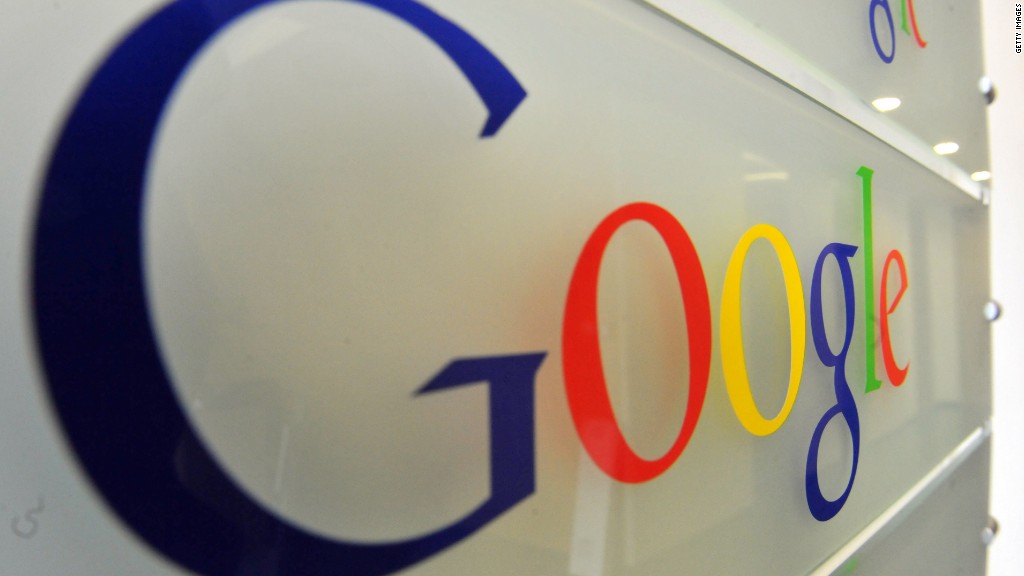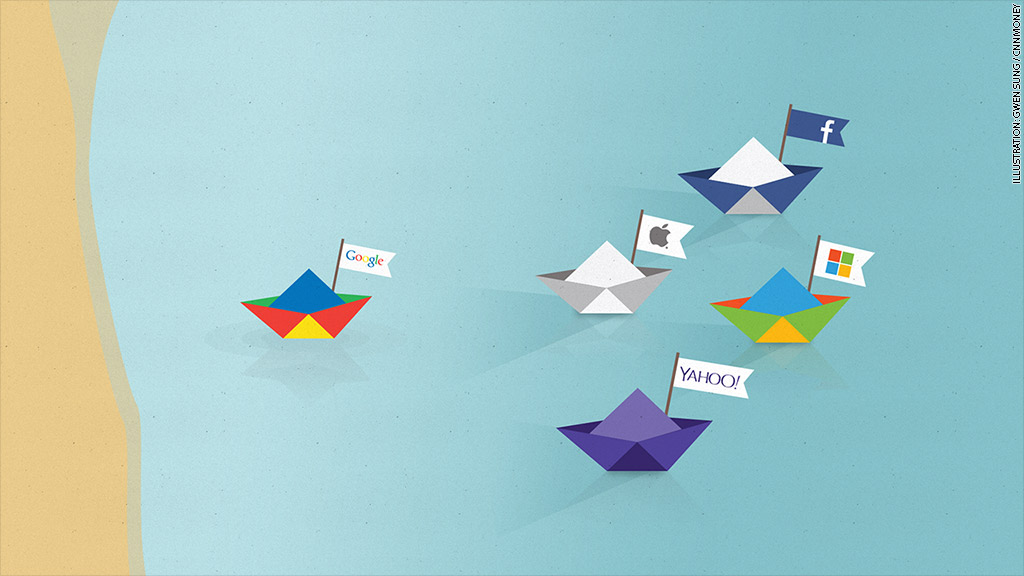
Google may be a great place to work for, but it hasn't been a great place for investors to put their money lately.
Shares of Google (GOOGL) are down nearly 10% in 2014 and are near their 52-week low.
CEO Larry Page can't be "super excited" (one of his favorite phrases) about that -- especially when you look at how well Google's competitors have done this year.
Microsoft's (MSFT) stock is up more than 25%. So is Yahoo's (YHOO), thanks to a big boost from the Alibaba (BABA) IPO.
Shares of Chinese search king Baidu (BIDU) have gained 30%. Apple (AAPL) shares are up nearly 40%.
And Facebook's (FB) stock has surged more than 40%.

So why has Google had, to borrow the title of a classic children's book, a terrible, horrible, no good, very bad year?
Competition gets tougher: Facebook has seemed to steal some of Google's momentum in the online advertising market.
Google is still the worldwide leader, with a 31% share of overall digital ad revenue this year, according to figures from research firm eMarketer. But Google's share slid a bit while Facebook's jumped from about 6% to nearly 8%.
Facebook is also gaining ground on Google in mobile too. The social network's mobile ad market share rose to about 18.5% this year from under 17% a year ago. Google's mobile market share dropped from 47% in 2013 to 40.5% this year.
Related: Google mobile ads get more clicks, less money
There are also growing concerns that Facebook is going to take away online video revenue from Google's YouTube. Facebook has aggressively boosted its video efforts.
The resurgence of Apple is also a negative for Google, whose Android mobile operating system is the main rival to Apple's iOS.
Leading Android partner Samsung has been losing market share this year while Apple has its cool factor back thanks to the iPhone 6 and 6 Plus.
Google also made several acquisitions this year that could help boost its revenue streams beyond advertising but may seem like odd, risky bets to average investors.
The $3.2 billion purchase of connected devices maker Nest for $3.2 billion, as well as the acquisitions of drone maker Titan Aerospace and satellite company Skybox Imaging, could wind up being really smart decisions for the future.
Related: Drone pilot wanted: Starting salary $100,000
But the deals also reinforce the perception that Google is a company that is willing to throw a lot of spaghetti at the wall to see what sticks.
Google's purchase of Motorola Mobility in 2012 did not. Google sold a big chunk of Motorola to Chinese hardware giant Lenovo (LNVGY) earlier this year for a fraction of what it paid just two years ago.
That works fine when you're privately held but can be a problem when shareholders are more focused on short-term profits over longer-term strategic planning.
Overreaction? Google has been down this road before. Shareholders were skeptical of deals like YouTube and ad network DoubleClick in Google's early stages as a public company. Those acquisitions have more than paid off.
The company still is the dominant player in online advertising, even if it is starting to lose some market share. And it's not as if the company is in tough financial shape either.
Google has $62.2 billion in cash.
Analysts are forecasting that sales and earnings per share will grow 18% in 2015. That's extremely impressive for a company of Google's size.
Related: Time to shop 'til you drop for cheap stocks
Despite this, the stock is now trading for just 17 times 2015 earnings forecasts. That's a little bit cheaper than Microsoft and a huge discount to Facebook and Yahoo.
That's why Brian Wieser, an analyst at Pivotal Research, upgraded the stock to a "buy" on Wednesday.
He conceded that Google would be better off if it would "focus on advertising and leave the diversification endeavors to its executives' private investment choices."
But investors are treating Google as if it's an also-ran in online advertising even though it's the undisputed market leader.
It may be the case that all the negatives about Google are already priced into the stock.


